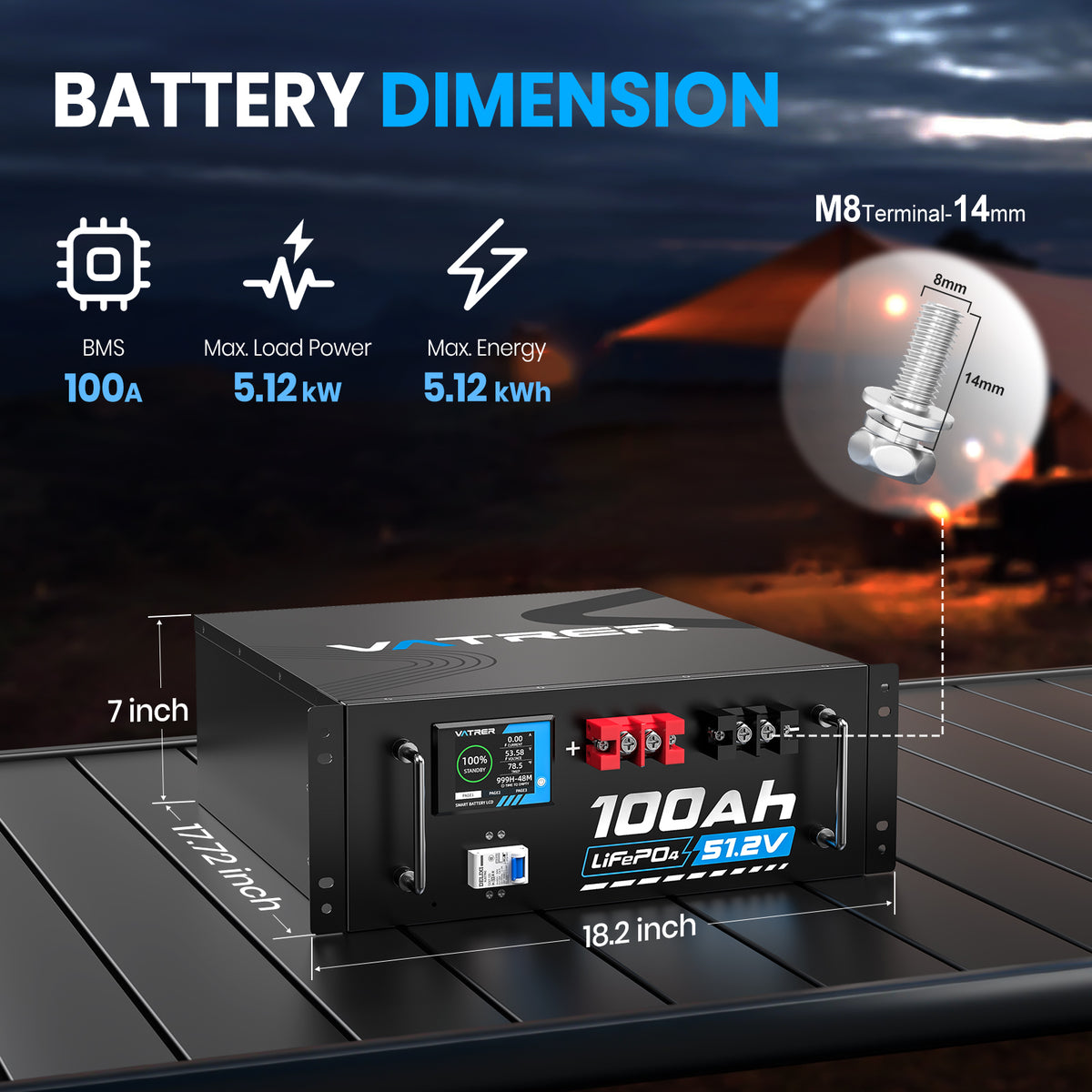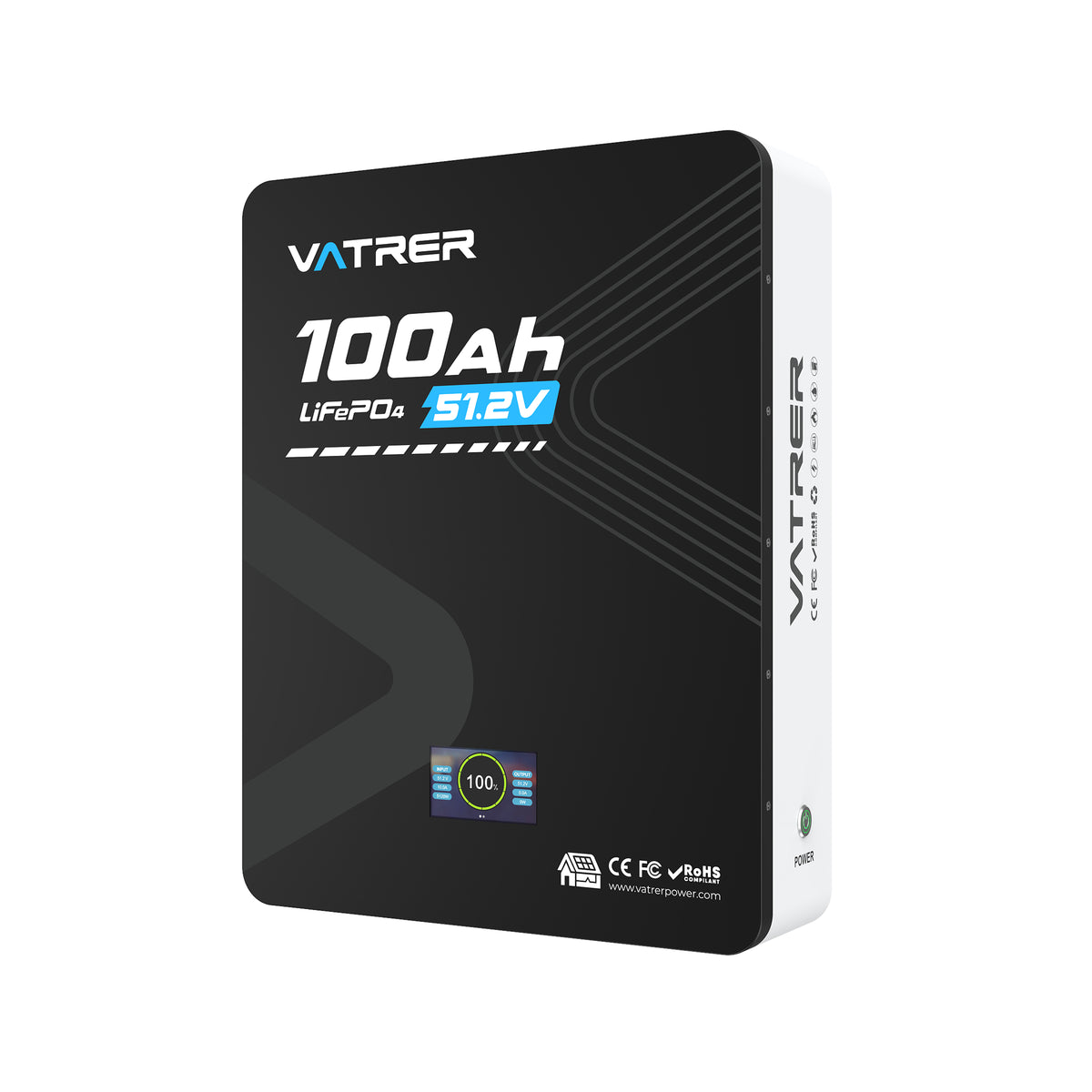FAQ
To charge a 48V lithium battery safely and effectively, follow these steps:
- Use the Correct Charger: Always use a charger that matches the specifications of your 48V lithium battery. Using an incorrect charger can damage the battery or pose safety risks.
- Connect the Charger: Connect your charger to the battery by attaching the charger's leads to the battery terminals. Ensure that the connections are secure and that the polarity is correct (positive to positive, negative to negative).
- Power On the Charger: Once securely connected, plug the charger into an electrical outlet and turn it on. Some chargers automatically start charging, while others might have a button you need to press.
- Monitor the Charging Process: Keep an eye on the charging process. Many modern lithium battery chargers have indicators or screens that display the charging status. It’s important not to overcharge the battery, so make sure to disconnect the charger once the battery is fully charged.
- Disconnect the Charger: After the battery is fully charged, turn off the charger and unplug it from the power source. Then, disconnect the charger from the battery.
- Safety Precautions: Never leave a charging battery unattended. Always charge in a well-ventilated area and away from flammable materials.
By following these steps, you can ensure that your 48V lithium battery is charged safely and ready to use.
The lifespan of a 48V lithium battery can vary based on several factors including usage, maintenance, and type of lithium technology (such as LiFePO4). Typically, a 48V lithium battery can last:
- Cycle Life: Most 48V lithium batteries are rated for 2,000 to 5,000 charge cycles, depending on the depth of discharge and the operating conditions. Some high-quality models may last even longer.
- Years of Use: With proper care and under normal usage conditions, a 48V lithium battery can last between 5 to 10 years.
- Performance Over Time: Lithium batteries generally maintain a good performance level and only start to degrade significantly after reaching about 80% of their rated cycle life.
To maximize the lifespan of your 48V lithium battery, it's important to follow the manufacturer’s guidelines for charging and maintenance, avoid extreme temperatures, and not regularly discharge the battery completely.
Charging a 48V battery directly with a 12V solar panel is not advisable as the voltage of the solar panel is too low to effectively charge the 48V battery. For efficient charging, the voltage output from the solar panel should be higher than that of the battery.
To charge a 48V battery with solar power, you would typically use one of the following methods:
- Use a Series of Solar Panels: Connect multiple 12V solar panels in series to increase the voltage to match or exceed 48 volts. For example, connecting four 12V panels in series would provide 48 volts.
- Use a Boost Converter: A boost converter can step up the voltage from a 12V solar panel to the required 48V needed to charge the battery. This device increases the voltage while lowering the current to keep the power output more or less constant.
- Use a Solar Charge Controller: A solar charge controller designed for 48V systems can also be used. Some advanced charge controllers can step up lower voltage (from the 12V panel) to charge a higher voltage battery system (such as 48V).
Each of these methods has its considerations in terms of efficiency, cost, and complexity. It's important to ensure that the entire charging setup, including panels, controller, and connections, is correctly configured and rated for the required voltages and currents to ensure safe and efficient charging.
Articles about 48V Lithium Ion Battery
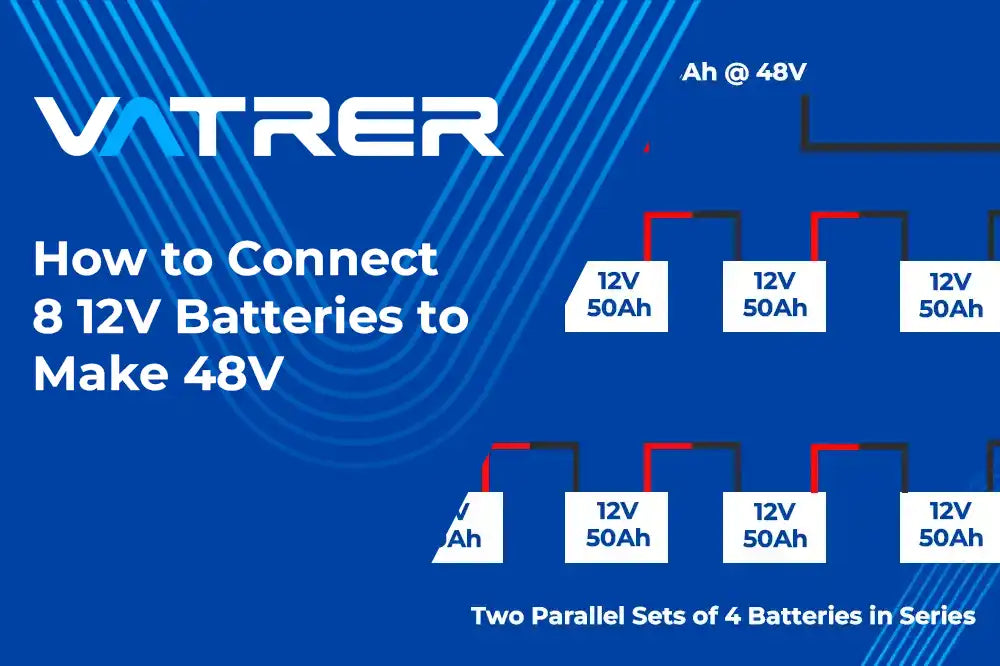
How to Connect 8 12V Batteries to Make 48V: A Step-by-Step Guide
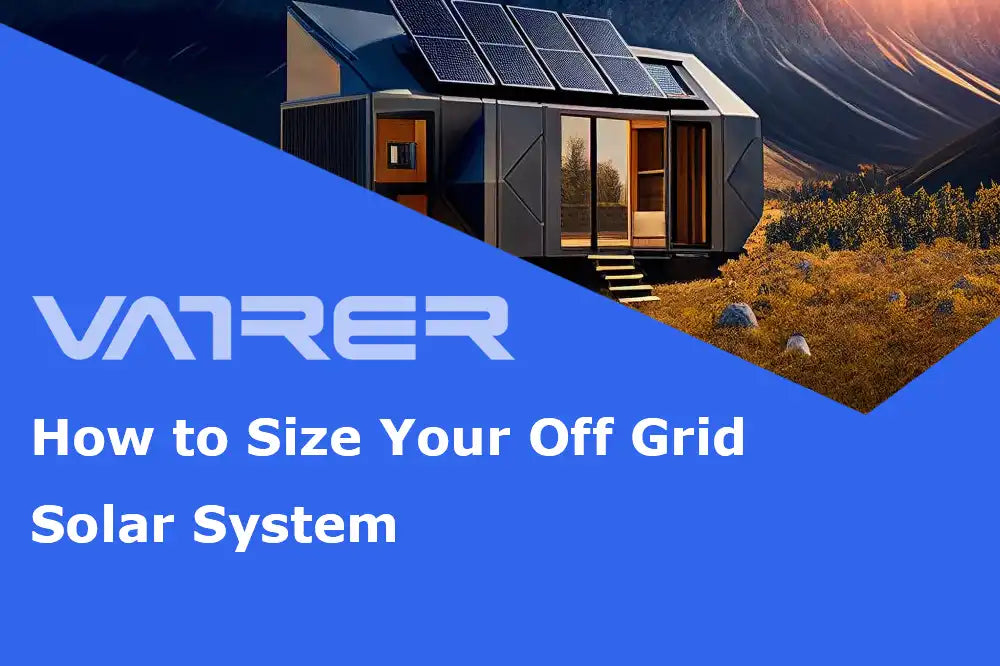
How to Size Your Off Grid Solar System
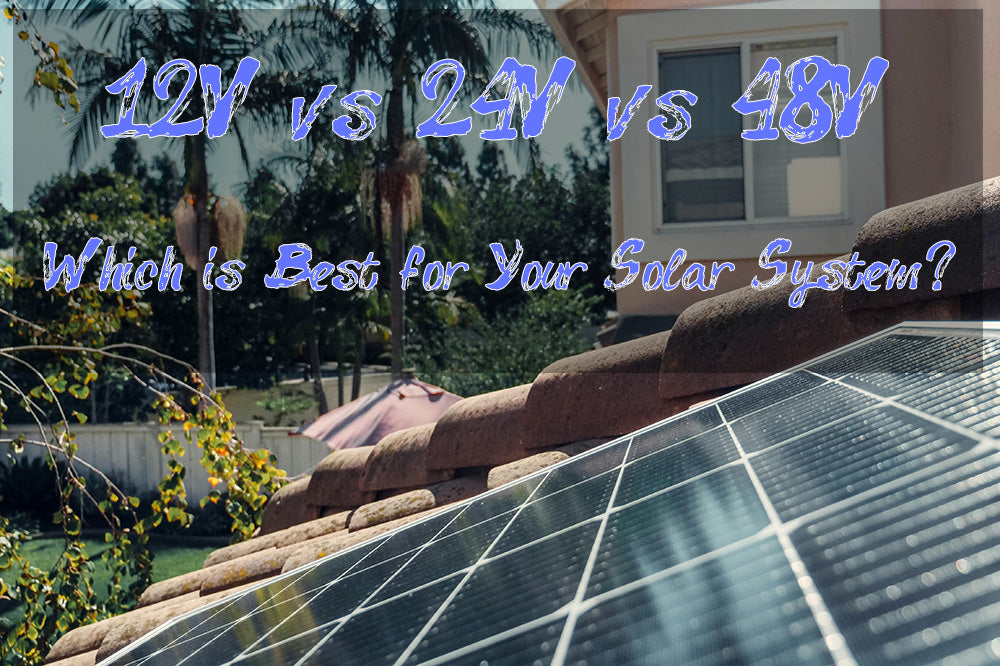
12V vs 24V vs 48V - Which is Best for Your Solar System?
Subscribe to Our Newsletter
Join our community. Get the latest news & offers!



